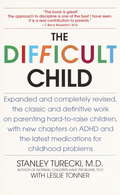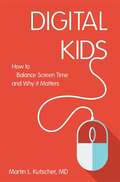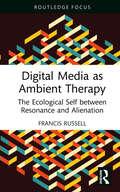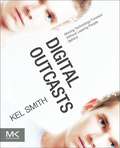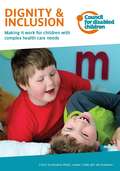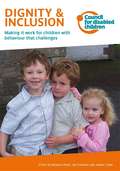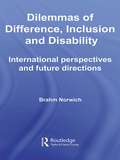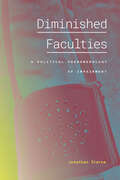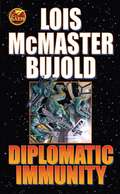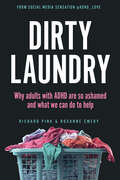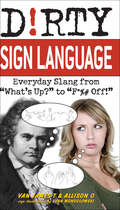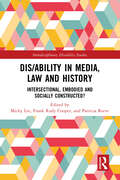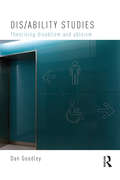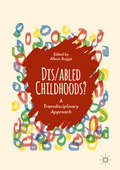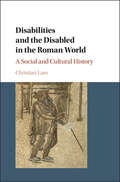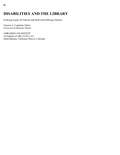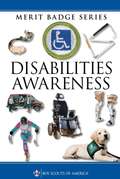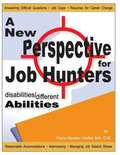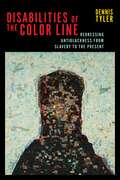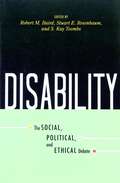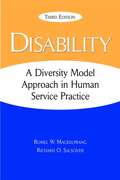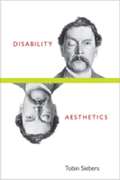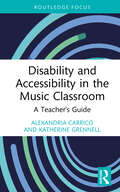- Table View
- List View
The Difficult Child
by Stanley Turecki Leslie TonnerHow to help--and cope with--the difficult childExpanded and completely revised, the classic and definitive work on parenting hard-to-raise children with new sections on ADHD and the latest medications for childhood disorders.Temperamentally difficult children can confuse and upset even experienced parents and teachers. They often act defiant, stubborn, loud, aggressive, or hyperactive. They can also be clingy, shy, whiny, picky, and impossible at bedtime, mealtimes, and in public places. This landmark book has been completely revised to include the latest information on ADHD, medications, and a reassuring approach to all aspects of childhood behavioral disorders.In this parenting classic, Dr. Stanley Turecki, one of the nation's most respected experts on children and discipline--and himself the father of a once difficult child--offers compassionate and practical advice to parents of hard-to-raise children. Based on his experience with thousands of families in the highly successful Difficult Children Program he developed for Beth Israel Medical Center in New York City, his step-by-step approach shows you how to: Identify your child's temperament using a ten-point test to pinpoint specific difficulties Manage common--often "uncontrollable"--conflict situations expertly and gently Make discipline more effective and get better results with less punishment Get support from schools, doctors, professionals, and support groups Understand ADHD and other common diagnoses, and decide if medication is right for your child Make the most of the tremendous potential and creativity that many "difficult" children haveDrawing on his experience with thousands of families in his highly successful Difficult Child Program, Dr. Turecki shows parents how to:Identify their child's difficult temperament using a ten-point test to pinpoint specific difficultiesManage typical conflict situations expertly and kindlyMake discipline more effective and get better results with less punishmentGet support from schools, doctors, and others Understand ADHD and other common diagnoses, and decide whether medication is right for their childMake the most of the child's creativity and potential -->From the Trade Paperback edition.
Digital Kids: How to Balance Screen Time, and Why it Matters
by Natalie Rosin Martin L. KutscherFor many children and teens daily Internet use is the norm - but where should we draw the line when it comes to digital media usage? This handy book lays out the essential information needed to understand and prevent excessive Internet use that negatively impacts behaviour, education, family life, and even physical health. Martin L. Kutscher, MD analyses neurological, psychological and educational research and draws on his own experience to show when Internet use stops being a good thing and starts to become excessive. He shows how to spot digital addictions, and offers whole family approaches for limiting the harmful effects of too much screen time, such as helping kids to learn to control their own Internet use. He tackles diverse questions ranging from the effects of laptops in the classroom and reading on a digital screen, to whether violent videogames lead to aggression. The author also explains how ADHD and Autism Spectrum Disorder (ASD) can make you more susceptible to Internet addiction, suggesting practical strategies to suit these specific needs. Discussing both the good and bad aspects of the internet, this book tells you everything you need to know to help children and young people use the internet in a healthy, balanced way.
Digital Media as Ambient Therapy: The Ecological Self between Resonance and Alienation (Routledge Studies in New Media and Cyberculture)
by Francis RussellDigital Media as Ambient Therapy explores the ways “mental illness” can emerge from our relationships (with ourselves, others, and the world), to address the concern around what kind of relationality is conducive for “mental health” and what role digital technologies can play in fostering such relationality.Exploring the rise of ambient—that is to say, ubiquitous, surrounding, and environmental—technologies and their impact on our understanding of “mental health,” sanity, and therapy, this book critically examines the work of influential contemporary social theorists such as Hartmut Rosa and investigates case studies that reveal new modes of digitally mediated intimacy and attention, such as ASMR and QAnon. It also poses the question of what “mental health” and “mental illness” mean for subjects increasingly faced with a maddening sense of interconnectedness.This book offers new perspectives for academics and postgraduates interested in critical discussions of alienation, digital technology, and contemporary social theory.
Digital Outcasts: Moving Technology Forward Without Leaving People Behind
by Kel SmithThe blind person who tries to make an online purchase. The young girl who cannot speak due to a cognitive disability. The man confined to his home due to permanent injury. The single mother with a long-term illness who struggles to feed her family. With one in seven people worldwide currently living with a disability, the term "outcast" covers numerous scenarios. Digital outcasts rely on technology for everyday services that many people take for granted. However, poorly designed products risk alienating this important (and growing) population. Through a "grass roots" approach to innovation, digital outcasts are gradually taking action to transform their lives and communities. This emerging trend provides exciting learning opportunities for all of us. Citing real-world case studies from healthcare to social science, this book examines the emerging legal and cultural impact of inclusive design. Gain a better understanding of how people with disabilities use technology Discover pitfalls and approaches to help you stay current in your UX practices Anticipate a future in which ambient benefit can be achieved for people of all abilities and backgrounds.
Dignity & Inclusion: Making it work for children with complex health care needs
by Amanda Allard Jan Delamore Jeanne CarlinThis publication will help all service providers to ensure that disabled children and young people with additional support needs can access services and lead a life as part of their local community, focusing on children who require clinical procedures, children who require moving and handling and children who need intimate care as part of their personal support. Drawing on and including examples of good practice from across the country, Making it work for children with complex health care needs illustrates the ways in which all agencies can work together to develop local policies and procedures to ensure that the needs of this group of children are met in a coordinated and child-centred way. Making it work for children with complex health care needs is one of two companion publications detailing good practice in both inclusive and specialist settings across education, health, social care and leisure.
Dignity & Inclusion: Making it work for children with behaviour that challenges
by Jeanne Carlin Jan Delamore Amanda AllardThis publication will help all service providers to ensure that disabled children and young people with additional support needs can access services and lead a life as part of their local community, focusing on children who have behaviour that challenges as a result of either a severe learning disability and/or autism. Drawing on and including examples of good practice from across the country, Making it work for children with behaviour that challenges illustrates the ways in which all agencies can work together to develop local policies and procedures to ensure that the needs of this group of children are met in a coordinated and child-centred way. Making it work for children with behaviour that challenges is one of two companion publications detailing good practice in both inclusive and specialist settings across education, health, social care and leisure.
Dilemmas of Difference, Inclusion and Disability: International Perspectives and Future Directions
by Brahm Norwich**Shortlisted for the nasen Special Educational Needs Academic Book award 2008** Inclusion has become very influential internationally in the field of schooling. This has involved the introduction of policies that pursue more provision for, and acceptance of, students with special educational needs or disabilities in ordinary school settings. However, these policies represent different and often conflicting values and approaches to education. The basic dilemma of difference is whether to recognise or not to recognise differences, as either way there are negative implications or risks associated with stigma, devaluation, rejection or denial of relevant opportunities. This is the first book to examine ideas about these dilemmas from a range of disciplines and fields about the nature and origins of such dilemmas as they apply to special and inclusive education. In particular these dilemmas are about: identification – whether to identify students as having special educational needs / disabilities or not? curriculum – how much of a common curriculum is relevant to these students? placement – can appropriate learning can take place in ordinary schools and classes or not? This ground-breaking book examines professional educators and administrators at national and local authority level across three countries – England, USA and the Netherlands – and questions how they recognise tensions or dilemmas in responding to student differences. Of interest to researchers, students, academics and professionals, this study will provide a much needed, balanced and powerful contribution to the inclusion debate.
Dimensions of Ethical Decision-Making: A Guided Exploration for Interpreters
by Kellie Mills Stewart Anna Witter-MerithewProvides a guided exploration of the dimensions that impact ethical decision-making and engages interpreters in a variety of discussions and activities designed to foster greater degrees of ethical fitness. Fosters a collegial investigation of ethics and ethical decision-making as the cornerstone of effective autonomous practice.
Diminished Faculties: A Political Phenomenology of Impairment
by Jonathan SterneIn Diminished Faculties Jonathan Sterne offers a sweeping cultural study and theorization of impairment. Drawing on his personal history with thyroid cancer and a paralyzed vocal cord, Sterne undertakes a political phenomenology of impairment in which experience is understood from the standpoint of a subject that is not fully able to account for itself. He conceives of impairment as a fundamental dimension of human experience, examining it as both political and physical. While some impairments are enshrined as normal in international standards, others are treated as causes or effects of illness or disability. Alongside his fractured account of experience, Sterne provides a tour of alternative vocal technologies and practices; a study of “normal” hearing loss as a cultural practice rather than a medical problem; and an intertwined history and phenomenology of fatigue that follows the concept as it careens from people to materials science to industrial management to spoons. Sterne demonstrates how impairment is a problem, opportunity, and occasion for approaching larger questions about disability, subjectivity, power, technology, and experience in new ways. Diminished Faculties ends with a practical user’s guide to impairment theory.
Diplomatic Immunity (Miles Vorkosigan #12)
by Lois Mcmaster BujoldMs. Bujold links two of her story lines in this work. Emperor Gregor dispatches Miles Vorkosigan to deal with a diplomatic crisis on Graf Station, home of the Quaddies.
Dirty Laundry: Why Adults with ADHD Are So Ashamed and What We Can Do to Help
by Richard Pink Roxanne EmeryAn empowering and witty guide to banishing shame and living your fullest life with ADHD—plus tips for loved ones on helping them navigate this world, too—from viral duo ADHD_Love. What if you stopped feeling ashamed of constantly being late or of getting so hyperfocused on a task that you drop everything else you had to do? How can you as a partner, parent, or friend better understand your neurodivergent loved one&’s way of moving through the world? In Dirty Laundry, life partners Rich Pink and Rox Emery unapologetically guide you through the ups and downs of life with ADHD. Every chapter starts with a common symptom of ADHD, like impulsivity or struggles with finances, and an earnest moment from their own lives to show you how they navigate the symptom together. Rox reminds you to be kind to yourself and love yourself for who you are; Rich offers tips on how he uses compassion and honesty instead of jumping to conclusions. Whether it's helping your ADHDer with friendly time-checks before an appointment or reminding yourself to take breaks during hours spent hyperfocusing on a new project, Rox and Rich give you the tools to destigmatize and normalize life with ADHD.
Dirty Sign Language: Everyday Slang from "What's Up?" to "F*%# Off!" (Dirty Everyday Slang Ser.)
by Evan Wondolowki Allison O Van James TGET D!RTY!Next time you're signing with your friends, drop the ASL textbook formality and start flashing the signs they don't teach in any classroom, including: cool slang funny insults explicit sex terms raw swear wordsDirty Sign Language teaches casual everyday words and expressions like: Peace out! Asshole. Bit me! Dumbfuck! Boner I'm hung like a horse.
Dis/ability in Media, Law and History: Intersectional, Embodied AND Socially Constructed? (Interdisciplinary Disability Studies)
by Micky LeeThis book explores how being "disabled" originates in the physical world, social representations and rules, and historical power relations—the interplay of which render bodies "normal" or not. Do parking signs that represent people in wheelchairs as self-propelling influence how we view dis/ability? How do wheelchair users understand their own bodies and an environment not built for them? By asking questions like these the authors reveal how normalization has informed people’s experiences of their bodies and their fight for substantive equality. Understanding these processes requires acknowledging the tension between social construction and embodiment as well as centering the intersection of dis/abilities with other identities, such as race, class, gender, sex orientation, citizen status, and so on. Scholars and researchers will find that this book provides new avenues for thinking about dis/ability. A wider audience will find it accessible and informative.
Dis/ability Studies: Theorising disablism and ableism
by Dan GoodleyIn this ground-breaking new work, Dan Goodley makes the case for a novel, distinct, intellectual, and political project – dis/ability studies – an orientation that might encourage us to think again about the phenomena of disability and ability. Drawing on a range of interdisciplinary areas, including sociology, psychology, education, policy and cultural studies, this much needed text takes the most topical and important issues in critical disability theory, and pushes them into new theoretical territory. Goodley argues that we are entering a time of dis/ability studies, when both categories of disability and ability require expanding upon as a response to the global politics of neoliberal capitalism. Divided into two parts, the first section traces the dual processes of ableism and disablism, suggesting that one cannot exist without the other, and makes the case for a research-driven and intersectional analysis of dis/ability. The second section applies this new analytical framework to a range of critical topics, including: The biopolitics of dis/ability and debility Inclusive education Psychopathology Markets, communities and civil society. Dis/ability Studies provides much needed depth, texture and analysis in this emerging discipline. This accessible text will appeal to students and researchers of disability across a range of disciplines, as well as disability activists, policymakers, and practitioners working directly with disabled people.
Dis/abled Childhoods?
by Allison BoggisThis edited collection explores the intersectionality of childhood and disability. Whereas available scholarship tends to concentrate on care-giving, parenting, or supporting and teaching children and young people with special educational needs and disabilities, the contributors to this collection offer an engaging and accessible insight into childhoods that are impacted by disability and impairment. The discussions cut across traditional disciplinary divides and offer critical insights into the key issues that relate to disabled children and young people's lives, encouraging the exploration of both disability and childhoods in their broadest terms. Dis/abled Childhoods? will be of interest to students and scholars across a range of disciplines including Special Educational Needs; Childhood Studies; Disability Studies; Youth Studies; and Health and Social Care.
Disabilities and the Disabled in the Roman World: A Social And Cultural History
by Christian LaesAlmost fifteen per cent of the world's population today experiences some form of mental or physical disability and society tries to accommodate their needs. But what was the situation in the Roman world? Was there a concept of disability? How were the disabled treated? How did they manage in their daily lives? What answers did medical doctors, philosophers and patristic writers give for their problems? <P><P>This book, the first monograph on the subject in English, explores the medical and material contexts for disability in the ancient world, and discusses the chances of survival for those who were born with a handicap. It covers the various sorts of disability: mental problems, blindness, deafness and deaf-muteness, speech impairment and mobility impairment, and includes discussions of famous instances of disability from the ancient world, such as the madness of Emperor Caligula, the stuttering of Emperor Claudius and the blindness of Homer.<P> The first scholarly study of the subject in English.<P> Comprehensively engages with literary sources, legal texts, epigraphy and papyrology, as well as with material evidence such as iconography.<P> Adopts an explicitly comparative approach which constantly seeks dialogue with new approaches and studies concerning other periods.
Disabilities and the Library: Fostering Equity for Patrons and Staff with Differing Abilities
by Clayton A. CopelandDisabilities and the Library helps readers understand the challenges faced by people who are differently abled, both as patrons and as information professionals. Readers will learn to assess their library's physical facilities, programming, staff, and continuing education to ensure that their libraries are prepared to include people of all abilities. Inclusive programming and collection development suggestions will help librarians to meet the needs of patrons and colleagues with mobility and dexterity problems, learning differences, hearing and vision limitations, sensory and cognitive challenges, autism, and more. Additional information is included about assistive and adaptive technologies and web accessibility. Librarians will value this accessible and important book as they strive for equity and inclusivity.
Disabilities Awareness (Merit Badge Series)
by Boy Scouts of America StaffBoy Scouts of America Merit Badge Series: Disabilities Awareness.
Disabilities/Different Abilities
by Paula Reuben VieilletThis is a hands-on workbook which will help the job hunter who has a disability secure employment. Step by step, this manual guides the job hunter through the vocational process in an honest and positive manner so as to get results. It is designed for individual usage, or in conjunction with a trained professional. The first section, Getting to Know You, addresses self-esteem, personal values and job goal definition and includes motivational strategy. The second section, Facing Workplace Discrimination, reviews application and interviewing functions with a focus on eliminating discrimination in the hiring process. Typical concerns of job hunters are answered in a straightforward and informative manner. The third section, Ready, Set, Go, deals with feelings and concerns regarding returning to work and includes a handy reference guide of available resources for job hunters with disabilities.
Disabilities of the Color Line: Redressing Antiblackness from Slavery to the Present (Crip #5)
by Dennis TylerReveals how disability and disablement have shaped Black social life in AmericaThrough both law and custom, the color line has cast Black people as innately disabled and thus unfit for freedom, incapable of self-governance, and contagious within the national body politic. Disabilities of the Color Line maintains that the Black literary tradition historically has inverted this casting by exposing the disablement of racism without disclaiming disability.In place of a triumphalist narrative of overcoming where both disability and disablement alike are shunned, Dennis Tyler argues that Black authors and activists have consistently avowed what he calls the disabilities of the color line: the historical and ongoing anti-Black systems of division that maim, immobilize, and stigmatize Black people. In doing so, Tyler reveals how Black writers and activists such as David Walker, Henry Box Brown, William and Ellen Craft, Charles Chesnutt, James Weldon Johnson, and Mamie Till-Mobley have engaged in a politics and aesthetics of redress: modes of resistance that, in the pursuit of racial and disability justice, acknowledged the disabling violence perpetrated by anti-Black regimes in order to conceive or engender dynamic new worlds that account for people of all abilities. While some writers have affirmed disability to capture how their bodies, minds, and health have been made vulnerable to harm and impairment by the state and its citizens, others’ assertion of disability symbolizes a sense of community as well as a willingness to imagine and create a world distinct from the dominant social order.
Disability: The Social, Political, and Ethical Debate
by Robert M. Baird Stuart E. Rosenbaum S. Kay ToombsWhat is it like to experience disability? What are the prevailing cultural attitudes toward those who experience disability? How do social norms and public policies affect those experiencing disability? This book provides a vivid and concrete introduction to the wealth of social, political, and ethical debates that surround the disabled. Beginning with an exploration of the perspective of persons with disabilities, the essays demonstrate the extent to which the disability experience is affected by social and cultural values, attitudes, and policies. In addition to these first-person reflections, there are essays relating to such issues as: The disability rights movement; Disability studies; Social policy relating to disability; Physician-assisted suicide; genetic testing; selective abortion; the moral status of handicapped new-borns; living and dying with dignity. Written in an engaging style with a focus on the concrete, this collection of essays includes contributions by John Hockenberry, Charles Krauthammer, Peter Singer, and others. It is a marvellous resource for enabling the reader to comprehend the experience of disability and to explore contemporary issues involving the disability community.
Disability: A Diversity Model Approach in Human Service Practice (Second Edition)
by Romel Mackelprang Richard SalsgiverThis comprehensive text fills a huge void in the field! Romel W. Mackelprang and Richard O. Salsgiver introduce an empowerment approach to working with persons with disabilities -- a direction that lights the way for human service workers and provides clients with greater independence and resilience. The authors are ardent in their desire to empower persons with disabilities by building on their strengths. This comprehensive book features a ground-breaking, strengths-based approach that fills a void in the available material on this topic, and thoroughly prepares helpers to work successfully with persons who have disabilities.
Disability: A Diversity Model Approach in Human Service Practice,Third Edition
by Romel W. Mackelprang Richard O. SalsgiverThe authors address policy, theory, description, and practice, stressing the difference of disability rather than the dysfunction of disability. The text is illustrated with in-depth personal narratives by those living with disability and thought-provoking sidebars that ask readers to consider the implications of their own reactions to disability. The book establishes the historical and societal context in which those with disabilities are marginalized, discusses the major groupings of disabilities, and finally offers a model for assessment and practice that human service practitioners can adopt. It develops a contemporary perspective in which people with disabilities are considered valuable and contributing members of society.
Disability Aesthetics
by Tobin SiebersDisability Aesthetics ambitiously redefines both 'disability' and 'aesthetics,' showing us that disability is central not only to modern art but also to the way we apprehend (and interact with) bodies and buildings. Along the way, Tobin Siebers revisits the beautiful and the sublime, 'degenerate' art and 'disqualified' bodies, culture wars and condemned neighborhoods, the art of Marc Quinn and the fiction of Junot Díaz---and much, much more. Disability Aesthetics is a stunning achievement, a must-read for anyone interested in how to understand the world we half create and half perceive." ---Michael Bérubé, Paterno Family Professor in Literature, Pennsylvania State University. "Rich with examples of the disabled body in both historical and modern art, Tobin Siebers's new book explores how disability problematizes commonly accepted ideas about aesthetics and beauty. For Siebers, disability is not a pejorative condition as much as it is a form of embodied difference. He is as comfortable discussing the Venus de Milo as he is discussing Andy Warhol. Disability Aesthetics is a prescient and much-needed contribution to visual & critical studies." ---Joseph Grigely, Professor of Visual and Critical Studies, The School of the Art Institute of Chicago. Disability Aesthetics is the first attempt to theorize the representation of disability in modern art and visual culture. It claims that the modern in art is perceived as disability, and that disability is evolving into an aesthetic value in itself. It argues that the essential arguments at the heart of the American culture wars in the late twentieth century involved the rejection of disability both by targeting certain artworks as "sick" and by characterizing these artworks as representative of a sick culture. The book also tracks the seminal role of National Socialism in perceiving the powerful connection between modern art and disability. It probes a variety of central aesthetic questions, producing a new understanding of art vandalism, an argument about the centrality of wounded bodies to global communication, and a systematic reading of the use put to aesthetics to justify the oppression of disabled people. In this richly illustrated and accessibly written book, Tobin Siebers masterfully demonstrates the crucial roles that the disabled mind and disabled body have played in the evolution of modern aesthetics, unveiling disability as a unique resource discovered by modern art and then embraced by it as a defining concept. Tobin Siebers is V. L. Parrington Collegiate Professor of English Language and Literature and Art and Design at the University of Michigan. His many books include Disability Theory and The Subject and Other Subjects: On Ethical, Aesthetic, and Political Identity. A volume in the series Corporealities: Discourses of Disability.
Disability and Accessibility in the Music Classroom: A Teacher's Guide (Modern Musicology and the College Classroom)
by Alexandria Carrico Katherine GrennellDisability and Accessibility in the Music Classroom provides college music history instructors with a concise guide on how to create an accessible and inclusive classroom environment. In addition to providing a concise overview of disability studies, highlighting definitions, theories, and national and international policies related to disability, this book offers practical applications for implementing accessibility measures in the music history classroom. The latter half of this text provides case studies of well-known disabled composers and musicians from the Western Art Music canon from the Middle Ages to the Twentieth Century as well as popular music genres, such as the blues, jazz, R&B, pop, country, and hip hop. These examples provide opportunities to integrate discussions of disability into a standard music history curriculum.
